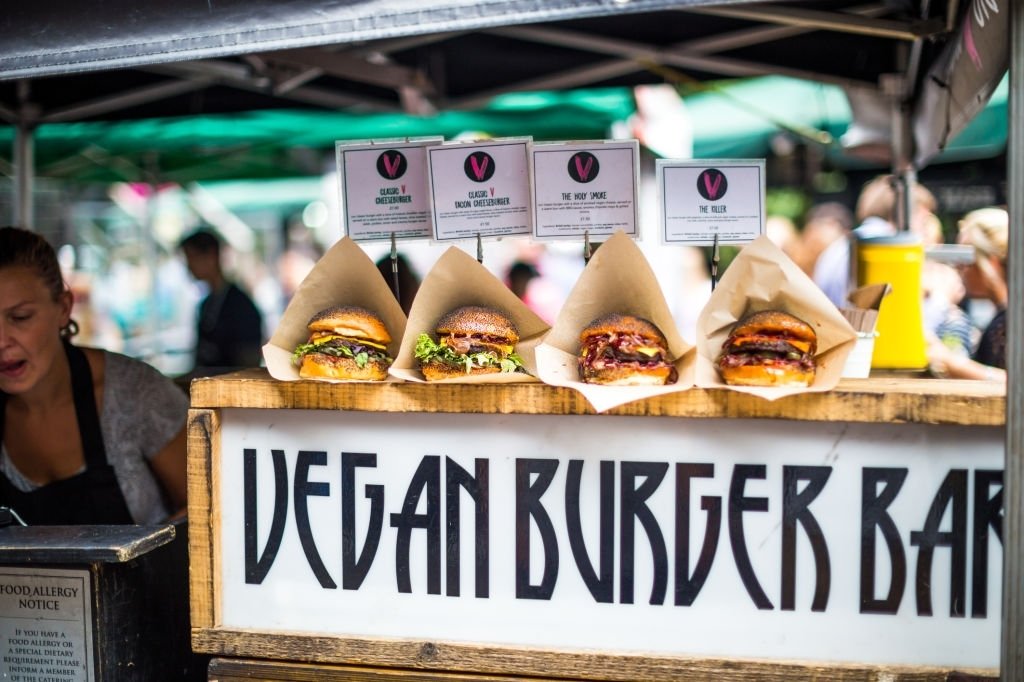As more and more people embrace a vegan lifestyle, it’s no surprise that parents may also consider a vegan diet for their children. But is it healthy? The good news is that with proper planning and attention to essential nutrients, a vegan diet can provide all the necessary nutrition for growing children. In this article, we’ll explore the benefits, challenges, and tips for maintaining a healthy vegan diet during childhood.
While a well-planned and balanced vegan diet can provide adequate nutrition for children, there are some potential risks that need to be considered and addressed to ensure their health and well-being.
One of the main concerns is the risk of nutrient deficiencies, particularly for nutrients that are commonly found in animal-based foods.
For example, children on a vegan diet may have a higher risk of inadequate intake of vitamin B12, vitamin D, calcium, iron, and omega-3 fatty acids.
These nutrients are essential for proper growth, brain development, and overall health. It is crucial for parents to be knowledgeable about alternative plant-based sources and consider appropriate supplementation or fortified foods to meet their child’s nutritional needs.
Another potential risk is insufficient calorie intake or poor weight gain. Plant-based diets, especially if not properly planned, can be lower in calories and less energy-dense than diets that include animal products.
This may result in children not consuming enough calories to support their growth and development. Parents should ensure that meals and snacks are adequately balanced and offer a variety of calorie-dense plant-based foods to meet their child’s energy requirements.
Additionally, some children may have food preferences or allergies that further restrict their diet within the vegan framework.
This can make it more challenging to ensure a well-rounded and nutritionally complete diet.
Regular monitoring of growth, development, and nutrient status, along with consultation with a healthcare professional or registered dietitian, can help address and mitigate any potential risks.
While a vegan diet can be suitable for children, it is important for parents to be well-informed about potential nutrient deficiencies, monitor their child’s growth and development, and ensure a varied and balanced diet. We will cover what to look out for below in our ‘Essential Nutrients’ section.
With proper planning, appropriate supplementation, and regular healthcare professional guidance, the risks associated with a vegan diet for children can be minimized, allowing them to thrive on a plant-based lifestyle.
Benefits of a Vegan Diet for Children
A well-planned vegan diet offers numerous health benefits for children, such as:
- Reduced risk of obesity: According to studies, following a plant-based diet is associated with lower body fat levels, helping prevent childhood obesity.
- Lower risk of chronic illness: A balanced vegan eating plan helps in reducing the risk of future chronic diseases like heart disease and diabetes.
- Better digestion: A high-fiber diet with plenty of fruits, vegetables, legumes, and whole grains promotes healthy digestion and regular bowel movements.
Essential Nutrients for Vegan Children
Parents must ensure their vegan child gets enough nutrients listed below:
- Protein: Adequate protein intake is crucial for growth and development. Include plant-based protein sources like beans, lentils, tofu, tempeh, nuts and seeds in your child’s meals.
- Iron: Offer iron-rich foods such as spinach, kale, beans, and fortified cereals along with Vitamin C-rich produce to improve absorption.
- Calcium: Plant-based sources like leafy greens are great options.
- Vitamin B12: Since this vitamin is mainly found in animal products, supplementation or fortified food sources are crucial on a vegan diet.
- Omega-3: Include ground flaxseeds, chia seeds, and walnuts in your child’s diet to ensure adequate Omega-3 intake.
Challenges and Tips for Raising Vegan Children
While a vegan diet can be nutritionally complete, there are potential challenges parents may face:
- Picky eaters: If your vegan child has a limited palate, try to introduce new foods gradually and creatively.
- Social situations: Educate your child about their diet choices so they can navigate social events like birthday parties or afterschool snacks with peers.
On top of that, consider the following tips when raising vegan children:
- Plan balanced meals: A well-rounded vegan meal should include whole grains, legumes, fruits, vegetables, nuts, and seeds.
- Involve kids in meal planning and preparation: Teach them about different plant-based food groups while allowing them to choose recipes and help out in the kitchen.
- Encourage open communication: Talk with your child about their dietary preferences and address any questions or concerns they may have.
Do Vegan Children Grow Up To Eat A Vegan Diet?
The question of whether children who eat a vegan diet continue to follow it as they grow up is a topic of interest for many parents and individuals considering a vegan lifestyle. While there is no definitive answer, several factors can influence a child’s likelihood of continuing to eat a vegan diet into adulthood.
Firstly, parental support and guidance play a crucial role.
When children are raised in an environment where veganism is embraced and practiced consistently, they are more likely to view it as a normal and sustainable way of life.
Parents who provide adequate nutritional education and ensure a well-balanced vegan diet can help children develop a positive relationship with plant-based foods, increasing the chances of long-term adherence.
Secondly, peer influence and social acceptance can affect a child’s dietary choices.
As children grow older and become more independent, they may face peer pressure or encounter societal norms that differ from their vegan lifestyle.
However, the increasing popularity and accessibility of vegan options, along with a growing awareness of the ethical, environmental, and health benefits, can contribute to a supportive social environment that encourages and sustains a vegan diet throughout adulthood.
While the decision to continue a vegan diet into adulthood ultimately rests with the individual, early exposure to and support for veganism, along with the availability of resources and a supportive social network, can significantly impact a child’s likelihood of maintaining a vegan lifestyle as they grow older.
By providing a nurturing environment and fostering open dialogue, parents and caregivers can help empower children to make informed choices about their dietary habits, increasing the potential for a lifelong commitment to veganism.
Conclusion: Vegan Diet for Children
In conclusion, a well-planned and nutritious vegan diet is a viable option for children’s health and development. By being mindful of essential nutrients and addressing possible concerns proactively, you can provide your child with a healthy foundation that will last a lifetime.


